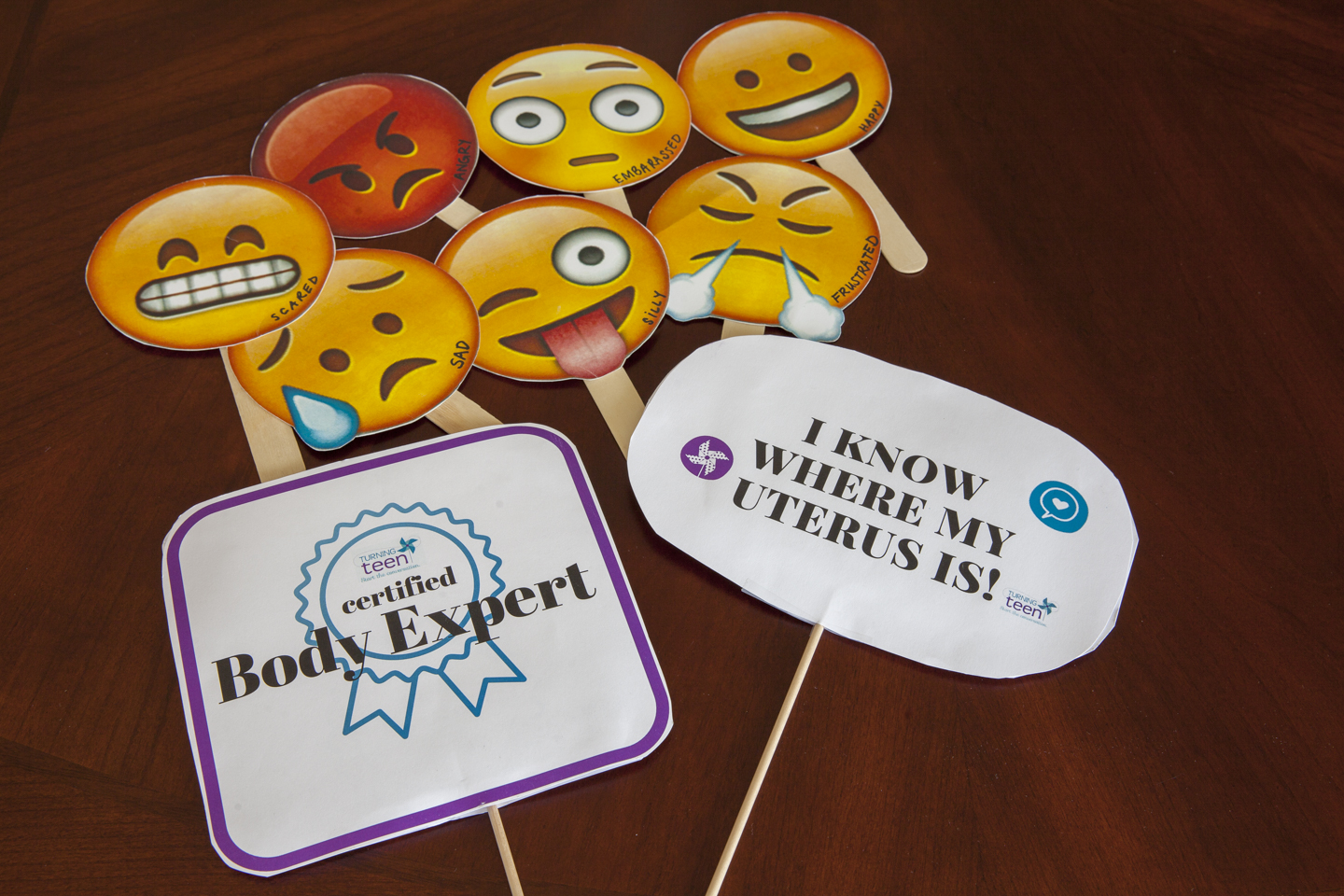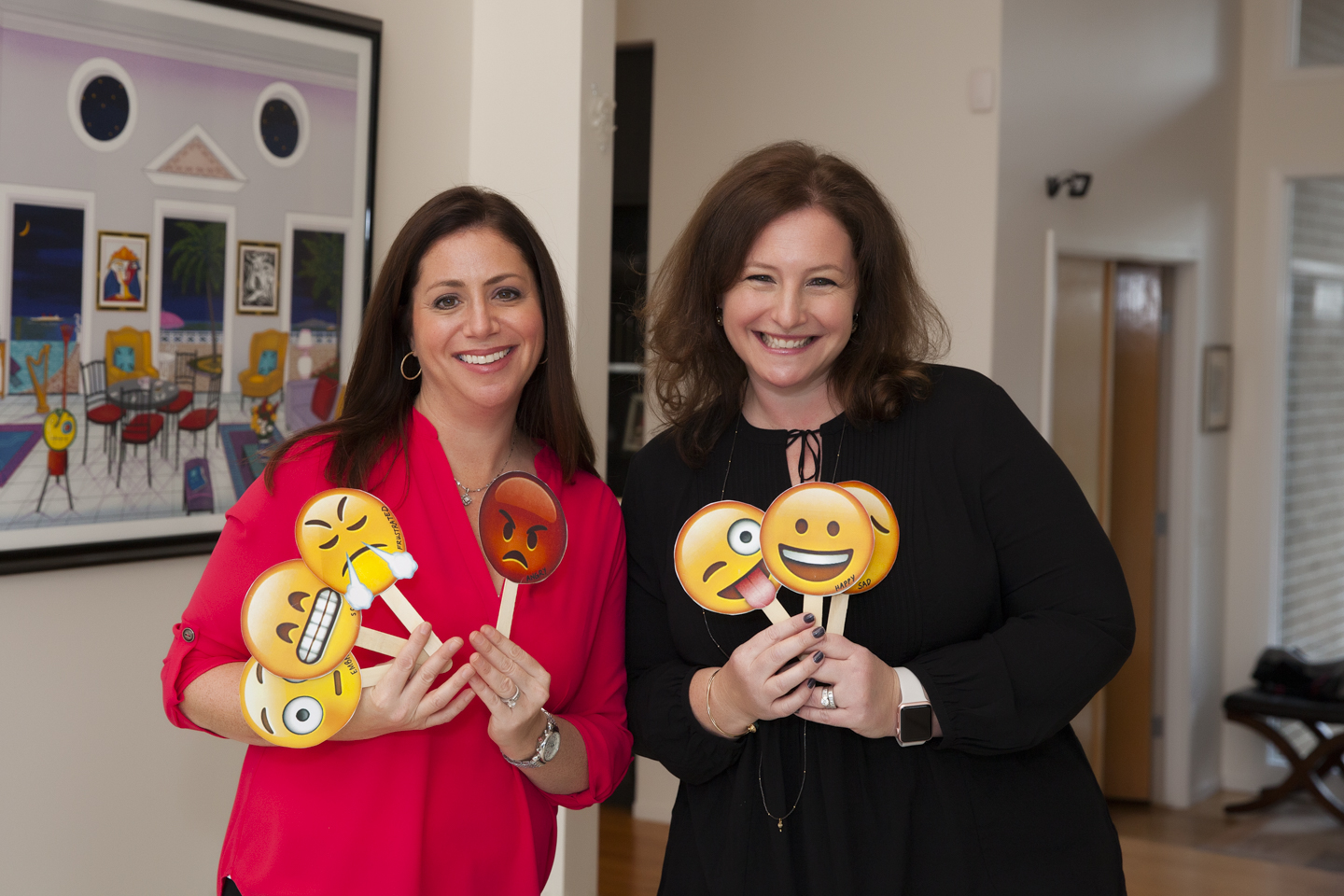by Vivian Henoch
Everybody goes through it. Why is talking about it so hard?
Now there’s help. For parents with questions about starting the conversation about puberty with their kids, physicians Lisa Klein and Carrie Leff have teamed up to offer answers in a series of workshops called Turning Teen.
With just the right mix of medical information, motherly wisdom, interactivity and humor, Turning Teen workshops are geared to engage pre-teens in learning about their changing bodies with parents at their side.
Physicians in private and separate practices, Dr. Lisa Klein and Dr. Carrie Leff have been friends since childhood and colleagues during their residency in William Beaumont Hospital. Lisa is a pediatrician with Child Health Associates, P.C. in Troy and Novi and Carrie is a pediatrician and internist with Novi Internal Medicine and Pediatrics.
In true social media form, the two re-connected as friends on Facebook, joining forces with the internet forum, Physician Moms Group. As Carrie recalls, in a conversation they had online, there was one of those aha moments where they realized they could bring puberty education to the community. “Our own kids were just approaching the age to start the conversation (Lisa’s boys are 9 and 12, my girls are 11, 9 and 6) and so we were in the thick of it ourselves.”
“As pediatricians, we understand the medical side of puberty. As moms, we worry about the emotional side of puberty. Getting children to understand their changing bodies and minds is a fragile puzzle that everyone could use help with.” – Dr. Lisa Klein and Dr. Carrie Leff
“In a doctor’s office you don’t have time in a 20-minute interval to talk about everything kids need to know,” says Lisa. “Parents come to us with so many questions: ‘How do I talk to my kids? What should we do?’ So, we started working in homes bringing our metaphors and showing our props. Out of this, Turning Teen was born, and it’s just grown and grown.”
“We’re a two-woman show, doing what we love,” says Carrie. “We started this venture two years ago when we came to the same realization that we share a passion for teaching. We call it our passion project, but it’s truly a full-fledged business now.”
Since they launched Turning Teen in October 2015, Lisa and Carrie have refined their curriculum, a Power Point presentation they keep lively with props, including anatomically correct twin mascot dolls, emoji sticks and a custom-designed soft-toy uterus (they’ve named Flo).
“All of our material is carefully researched, and our presentation is original,” says Lisa. “We’ve never seen or been to another puberty program comparable to what we’re doing. We are constantly searching and learning new ways to present the material to keep the attention of the kids and make the subject approachable – and fun. And we know from all the smiles in the room, and high fives when the kids are leaving, that we are succeeding.”

In conversation with Doctor Moms, Lisa Klein and Carrie Leff
myJewishDetroit: How many Turning Teen workshops do you lead?
Carrie: Currently, we offer three Turning Teen programs for preteens to attend accompanied by their parents: Body Basics for Girls ages 8+, Body Basics for Boys ages 10+ (starting in January) and Being My Best Self for Girls to learn how to care for their changing body. Additionally, we offer Surviving Puberty a Second Time just for parents.
myJDet: In brief, please share some of the key messages of your presentations.
Lisa: We start off with a pair of characters we’ve created – nine-year-old twins, a boy and a girl. We explain that one of the cool parts about the human body is that everyone is born with all the parts they will ever need in their lifetime.
Carrie: We talk about outside and inside body parts. And specifically for girls, we talk about inside body parts that they may have never heard of before.
Lisa: We often use metaphors and analogies in the explanation of concepts. For example, we think that kids now relate most things in life to an iPhone, so we use the analogy of an iPhone to describe hormones as “text messages” from the brain, telling the body what to do.
Carrie: We emphasize that we need to be comfortable talking about our bodies. Kids need to understand their bodies and body parts – as a safety measure and a means of decreasing the risk of sexual abuse.
Lisa: We use emojis as props to talk about emotions. We also encourage kids to express their feeling at our workshops. During the program there can be a lot of adolescent energy that bubbles up in the room, and, when the kids are feeling embarrassed or giggly, we ask them to hold up their emoji signs to tell us how they are feeling. It’s fascinating to see how this exercise plays out among 40 kids, each with a parent with them in the room.
Carrie: We like the idea of the program being fun and not super serious. Our intent is to make the workshop a different experience than any health class in school and any other program on sex education. We’ve had over 600 girls come through the program since the start, and we can say with confidence that they leave smiling, chatting with new friends. (And they all know where their uterus is!)
Lisa: Turning Teen is so much more than learning about puberty. Our purpose is to help kids and parents start the conversation about topics that open the door to future conversations about the more stressful times of adolescence – dating and peer pressure, sexual activity, alcohol and drug use.
Carrie: We do a physical piece, and then an emotional piece. For older girls starting puberty, we talk about self-confidence. We like to tell girls that they have this inner voice — it’s usually that nagging, self-doubting voice, that voice that says we’re not good enough. We tell girls, ‘The inner voice is just you talking to yourself, and you are in control of that voice. You can turn the channel and change your thoughts.’
myJDet: If you had just one message for kids going through puberty, what would it be?
Carrie: Get ready for a lot of changes ahead.
Lisa: We say two things: The main thing about puberty is that all people have to go through it, so we can reproduce, so that humans don’t become extinct. Our big message – our mission – is to let kids know that their parents have gone through puberty and survived and, more than likely, parents (not the internet) are the most trusted resource for information.
myJDet: What is the one thing parents need to know to get through puberty with their kids?
Lisa: I would say to parents that being an adolescent or teenager today is very different than it used to be, much more difficult, just because of the pressures of social media. It’s just a big tangled web out there. I think that parents also need to reach out to resources. Carrie and I view ourselves as one of the community resources available for kids, for parents – as well as for other pediatricians – looking for help navigating the world of adolescence.
Recommended Reading: Top Picks from Turning Teen
Untangled: Guiding Teenage Girls Through the Seven Transition into Adulthood, by Lisa Damour
Will Puberty Last My Whole Life? Real Questions from Preteens About Body Changes, Sex, and Other Growing-Up Stuff, by Julie Metzger
It’s So Amazing: A Book about Eggs, Sperm, Birth, Babies, and Families, by Robie H. Harris (and other titles in the series from The Family Library) —– a series
Sex is a Funny Word: A Book about Bodies, Feels, and YOU, by Cory Silverberg
To learn more about Turning Teen, visit online.




